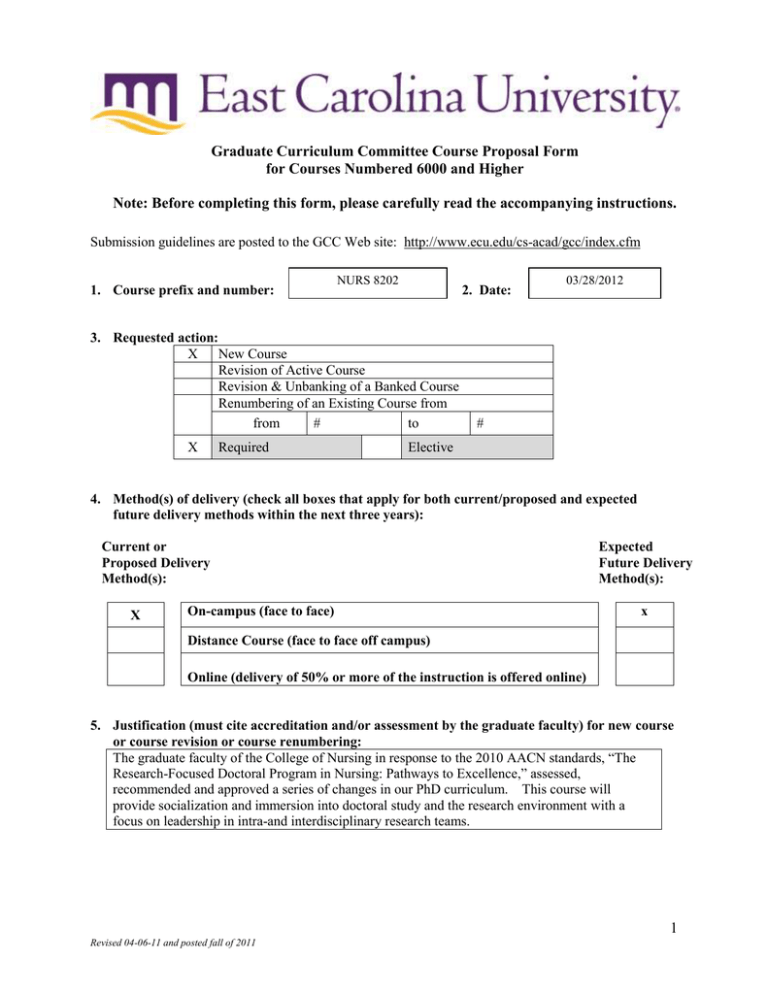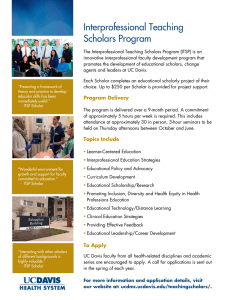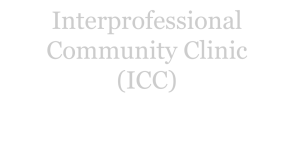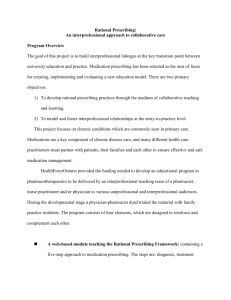Document 15476473
advertisement

Graduate Curriculum Committee Course Proposal Form for Courses Numbered 6000 and Higher Note: Before completing this form, please carefully read the accompanying instructions. Submission guidelines are posted to the GCC Web site: http://www.ecu.edu/cs-acad/gcc/index.cfm 1. Course prefix and number: NURS 8202 2. Date: 3. Requested action: X New Course Revision of Active Course Revision & Unbanking of a Banked Course Renumbering of an Existing Course from from # to X Required 03/28/2012 # Elective 4. Method(s) of delivery (check all boxes that apply for both current/proposed and expected future delivery methods within the next three years): Current or Proposed Delivery Method(s): X On-campus (face to face) Expected Future Delivery Method(s): x Distance Course (face to face off campus) Online (delivery of 50% or more of the instruction is offered online) 5. Justification (must cite accreditation and/or assessment by the graduate faculty) for new course or course revision or course renumbering: The graduate faculty of the College of Nursing in response to the 2010 AACN standards, “The Research-Focused Doctoral Program in Nursing: Pathways to Excellence,” assessed, recommended and approved a series of changes in our PhD curriculum. This course will provide socialization and immersion into doctoral study and the research environment with a focus on leadership in intra-and interdisciplinary research teams. 1 Revised 04-06-11 and posted fall of 2011 6. Course description exactly as it should appear in the next catalog: 8202. Seminar in Interprofessional Research (1) P: Admission to the PhD in nursing program or consent of program director. A forum for discussion among faculty, students, and invited guests relevant to interprofessional research collaboration. 7. If this is a course revision, briefly describe the requested change: 8. Course credit: Lecture Hours Weekly OR Lab Weekly OR Studio Weekly OR Practicum Weekly OR Internship Weekly OR Other (e.g., independent study) Please explain. Seminar 1.5 hrs every other wk Total Credit Hours Per Term Per Term Per Term Per Term Per Term Credit Hours Credit Hours Credit Hours Credit Hours Credit Hours s.h. s.h. s.h. s.h. s.h. s.h. 1 1 s.h. 8 9. Anticipated annual student enrollment: 10. Changes in degree hours of your programs: Degree(s)/Program(s) Changes in Degree Hours PhD CON Increase by 1 11. Affected degrees or academic programs, other than your programs: Degree(s)/Program(s) Changes in Degree Hours NA NA 12. Overlapping or duplication with affected units or programs: x Not applicable Documentation of notification to the affected academic degree programs is attached. 13. Council for Teacher Education (CTE) approval (for courses affecting teacher education): x Not applicable Applicable and CTE has given their approval. 14. University Service-Learning Committee (USLC) approval: x Not applicable Applicable and USLC has given their approval. 15. Statements of support: a. Staff x Current staff is adequate Additional staff is needed (describe needs in the box below): 2 Revised 04-06-11 and posted fall of 2011 b. Facilities x Current facilities are adequate Additional facilities are needed (describe needs in the box below): c. Library x Initial library resources are adequate Initial resources are needed (in the box below, give a brief explanation and an estimate for the cost of acquisition of required initial resources): d. Unit computer resources x Unit computer resources are adequate Additional unit computer resources are needed (in the box below, give a brief explanation and an estimate for the cost of acquisition): e. ITCS resources x ITCS resources are not needed The following ITCS resources are needed (put a check beside each need): Mainframe computer system Statistical services Network connections Computer lab for students Software Approval from the Director of ITCS attached 16. Course information (see: Graduate Curriculum and Program Development Manual for instructions): a. Textbook(s) and/or readings: author(s), name, publication date, publisher, and city/state/country. Include ISBN (when applicable). Reeves, S., Lewin, S., Espin, S., Zwarenstein, M., (2010). Interprofessional Teamwork in Health and Social Care. John Wiley and Sons. ISBN:9781405181914 Booth, W.C., Colomb, G., & Williams, J. (2008). The Craft of Research, 3rd Edition. Chicago: University of Chicago Press ISBN:9780226065663 Interprofessional Education Collaborative Expert Panel. (2011). Core Competencies for Interprofessional Collaborative Practice: Report of an Expert Panel. Washington, D.C.: Interprofessional Education Collaborative. http://www.aacn.nche.edu/educationresources/IPECReport.pdf 3 Revised 04-06-11 and posted fall of 2011 b. Course objectives for the course (student – centered, behavioral focus) Upon completion of this course, students will be able to: 1. 1. Organize the knowledge, skills and strategies necessary to collaborate and participate in team science. 2. 3. 2. Describe the process for developing the research team. 2. 3. Access the collaborative relationship needed for a strong research team. 4. Analyze the process issues involved in interdisciplinary research. c. Course topic outline Seminar Topics Key dimensions of an interprofessional team Professionals' experiences of teamwork Current developments affecting interprofessional teamwork Quality and safety of care - key driver for use of interprofessional teams Factors which affect team performance Evaluating interprofessional teams Developing interprofessional teams for research d. List of course assignments, weighting of each assignment, and grading/evaluation system for determining a grade Preparation for seminar and attendance is expected. Active, thoughtful participation in scholarly discussion on a consistent basis is an essential component of this learning activity and successfully completing the course. Attendance and participation 20% Professional Paper 80% Grading Scale 90-100%=A 89-80%=B 79-70%=C <70%=F 4 Revised 04-06-11 and posted fall of 2011



